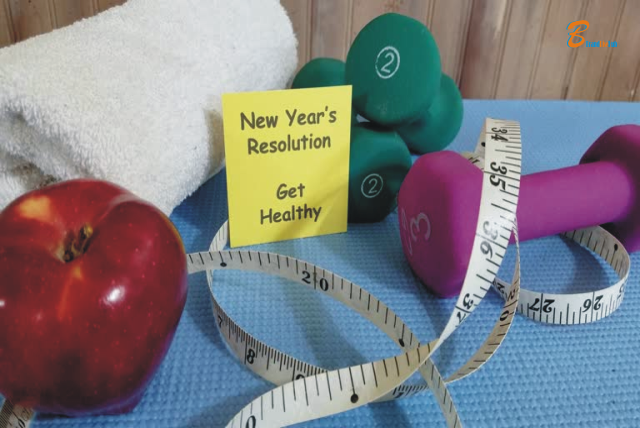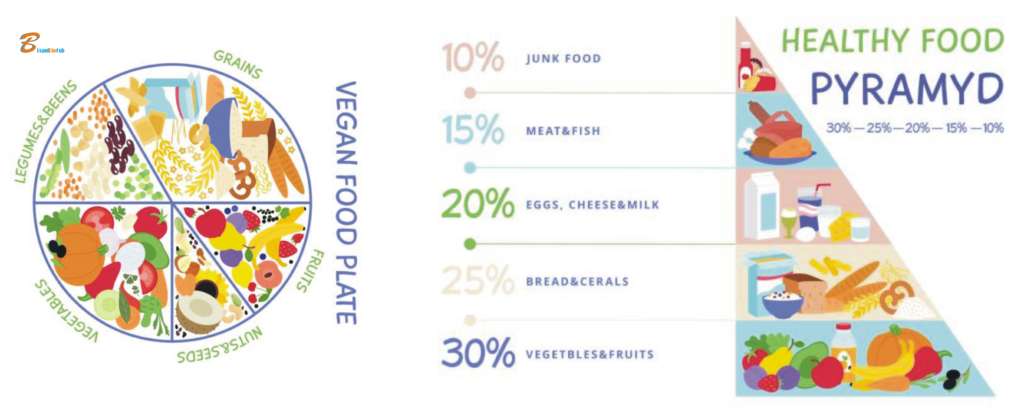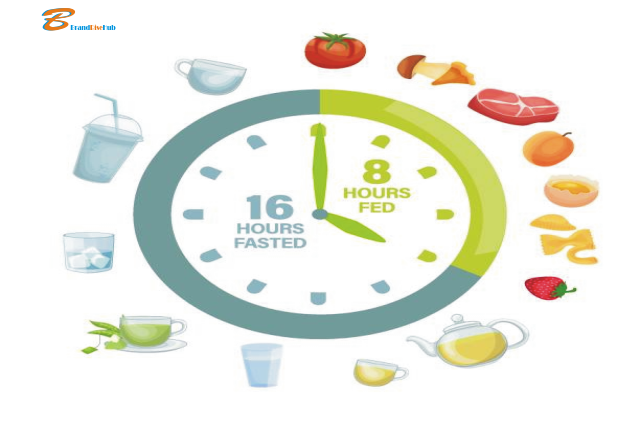Fitness Nutrition Tips | Unlock Peak Performance 2025
Let us tell you about health in which you can take special care of your health in your life. Fitness nutrition tips provide essential guidance for a healthy lifestyle. These tips contain effective strategies for improving nutrition and ensuring a well-balanced diet that supports overall fitness goals. With an emphasis on nutritious foods, these tips boost energy levels, promote muscle growth, and help with weight management.
By incorporating a variety of vitamins and minerals, fitness nutrition tips help improve physical performance and recovery. By following these guidelines, individuals can enhance their overall health by promoting the harmonious relationship between nutrition and well-being.
Contents
- 1 Rules for Optimal Fitness Nutrition Tips
- 1.1 Balanced Plate
- 1.2 Hydration Habit
- 1.3 Portion Control
- 1.4 Whole Foods Embrace
- 1.5 Strategic Timing
- 1.6 Variety is Vital
- 1.7 Mindful Eating
- 1.8 Limit Sugary Intake
- 1.9 Consultation Matters in Fitness Nutrition Tips
- 1.10 Consistency is Key
- 1.10.1 FAQs
- 1.10.1.1 Q1. What are fitness nutrition tips?
- 1.10.1.2 Q2. How can I improve my fitness nutrition?
- 1.10.1.3 Q3. What should I eat before and after a workout?
- 1.10.1.4 Q4. How important is hydration in fitness nutrition?
- 1.10.1.5 Q5. What role do carbohydrates play in fitness nutrition?
- 1.10.1.6 Q6. How much protein do I need for fitness nutrition?
- 1.10.1.7 Q7. Are fats important in fitness nutrition?
- 1.10.1.8 Q8. Should I take supplements for fitness nutrition?
- 1.10.1.9 Q9. How can I maintain a balanced plate in fitness nutrition?
- 1.10.1.10 Q10. What are some practical tips for staying consistent with fitness nutrition?
- 1.10.1 FAQs
- 1.11 Summing Up
- 1.12 Share this:
- 1.13 Like this:
Rules for Optimal Fitness Nutrition Tips
- Balanced Plate
- Hydration Habit
- Portion Control
- Whole Foods Embrace
- Strategic Timing
- Variety is Vital
- Mindful Eating
- Limit Sugary Intake
- Consultation Matters
- Consistency is Key
Balanced Plate
Ever thought about your dinner plate like a superhero team? Imagine your plate is like a squad, with different members bringing their unique powers to the table. You’ve got your colorful veggies, the real MVPs, taking up half the plate. They’re the ones bringing the vitamins, minerals, and fiber, keeping things in balance.
Then, you’ve got your protein pals, chilling out in another corner. They’re the muscle builders, helping you recover and stay strong. And let’s not forget about the carb crew, holding down the fort in their own space. They’re the energy boosters, fueling your body for all the adventures ahead. Together, they create the ultimate balanced plate. This ensures you get all the nutrients you need. You can conquer the day like a champ.
Hydration Habit
Think about your daily routine. How often do you reach for a glass of water? You might not even notice, but keeping yourself hydrated is key. Imagine starting your day with a refreshing glass of water. It sets the tone, right? Throughout the day, keep that water bottle handy. Sip it slowly, and you’ll find yourself feeling more energized.
Hydration isn’t just about gulping down water when you’re thirsty; it’s a habit. Notice the color of your urine. Sounds a bit strange, but it’s a good indicator of hydration. Light yellow? You’re doing great! Dark yellow? Time to up your water game. And hey, don’t forget about hydrating foods like juicy watermelon or crunchy cucumber. They’re not just delicious; they’re helping you stay hydrated too. So, let’s make staying hydrated a habit, shall we? Your body will thank you for it.
Portion Control
let’s delve into portion control. Picture a meal as a jigsaw puzzle, with each piece being a part of your plate. Portion control is like arranging those puzzle pieces just right, so you’re not left with too much or too little. It’s about balance, about ensuring each piece fits snugly without overflowing.
Imagine your plate as a canvas, and portion control is the brush that paints a masterpiece of nutrition. It’s not about restriction, but rather about harmony, ensuring every bite counts. So, next time you sit down to eat, think about portion control as your guiding star. It leads you to a balanced and satisfying meal.
Whole Foods Embrace
Invites a holistic approach to eating, where nutritious choices abound. Embracing whole foods means surrounding yourself with nature’s bounty, opting for vibrant fruits, crisp vegetables, and hearty grains. In the aisles, seek out unprocessed treasures, steering clear of artificial additives and hidden sugars.
At home, let your creativity flow, transforming raw ingredients into culinary delights that nourish body and soul. With each meal, celebrate the vibrant hues and diverse flavors of whole foods, savoring every bite mindfully. In this embrace, find balance and vitality, as whole foods become the cornerstone of your well-being journey.
Strategic Timing
Strategic timing can make a big difference in achieving your goals. This is true whether it’s in fitness, business, or any aspect of life. By considering the best moments to act or make decisions, you can maximize your chances of success. In fitness, for instance, eating the right foods at the right times can fuel your workouts and aid in recovery.
Similarly, in business, launching a product at the opportune moment can greatly impact its success. It’s all about being mindful of timing and making the most of favorable circumstances. So, next time you’re planning a workout, consider the best timing. When planning a business move, think strategically about when to take action for the best outcome.
Variety is Vital
Variety is vital when it comes to your diet. Different foods offer different nutrients. Eating a diverse range of foods is important. It ensures you get all the essential vitamins and minerals. Your body needs these to function at its best. Think of your meals as a colorful palette, with each food contributing its unique benefits. Add a variety of fruits, vegetables, whole grains, and lean proteins to your diet. This practice supports your overall health and well-being. So next time you’re planning your meals, remember: that variety is vital.
Mindful Eating
Mindful eating involves paying attention to the experience of eating, including the taste, texture, and sensations of each bite. It’s about being present in the moment and fully engaging with your food. By practicing mindful eating, you can develop a deeper appreciation for the nutrition you get from your food. You can also develop a healthier relationship with food.
Do not rush through your meal or eat on autopilot. Take the time to savor each bite. Notice how each bite makes you feel. Notice when your body is hungry. Feel when you are full. This can help you eat according to your body’s needs. Avoid eating based on external influences such as emotions or external distractions. By approaching food mindfully, you can increase your overall health and satisfaction with food. If you take care of your health, choose food items that you need for your health. Select foods that you like as well.
Limit Sugary Intake
Limiting sugar intake is crucial to maintaining a healthy lifestyle. Too much sugar can increase the risk of various health problems such as weight gain and tooth decay. It can also lead to chronic diseases such as diabetes and heart disease.
It’s important to be mindful of the amount of sugar you eat each day. Instead of sugary snacks and drinks, choose healthy alternatives like fruit, nuts, or plain yogurt. Reading food labels can help you identify hidden sugars in processed foods, so you can make informed choices.
Remember, small changes can make a big difference in lowering your sugar intake and improving your overall health. Take care of your health by choosing things that are low in sugar. This way, you can avoid these diseases. By choosing nutrient-rich options, you can lead a healthy life.
Consultation Matters in Fitness Nutrition Tips
A consultation is important because it allows for an understanding of your needs. This ensures that your concerns are addressed and that solutions are tailored to you. It is about collaboration, where both parties contribute ideas and expertise.
With counseling, you feel heard, valued, and empowered. It promotes trust and builds strong relationships. Ultimately, counseling leads to better outcomes and satisfaction for everyone involved. Likewise, if you consult your health practitioner for fitness nutrition tips about your health, you will be mentally fit. You will lead a happier life by considering the foods you eat every day.
Consistency is Key
Of course, consistency, that’s the real deal, you know? It’s like the saying goes, “Consistency is key.” And it is! When you maintain something day after day, that’s where the magic happens. Think about it. If you want to see results in fitness, you must be consistent. The same goes for learning a new skill or maintaining a hobby. Consistency is what gets you there. It’s like watering a plant, you have to do it regularly if you want it to grow. Same thing with whatever you’re working on. You have to stick with it, even when it gets tough or you feel like you’re not making progress.
Because here’s the thing, every little effort you put in, every single day, adds up. It’s like building blocks, you put one down today, another tomorrow, and eventually, you get a complete structure. So yeah, consistency, it’s not always glamorous or exciting, but man, that’s where the real power lies. Stick with it, keep showing up, and before you know it, you’ll be amazed at what you’ve accomplished. Constancy is as essential in life as the body needs air, water, and fire without which man cannot survive.
FAQs
Q1. What are fitness nutrition tips?
Answer: Fitness nutrition tips offer guidance on eating habits. They help you make food choices to support fitness goals. These tips also improve performance and enhance overall health.
Q2. How can I improve my fitness nutrition?
Answer: You can improve your fitness nutrition by focusing on consuming whole, nutrient-dense foods. Stay hydrated. Balance your macronutrients, which include carbohydrates, protein, and fats, appropriately.
Q3. What should I eat before and after a workout?
Answer: Before a workout, aim for a combination of carbohydrates and protein to fuel your body. After a workout, prioritize protein and carbohydrates to aid in muscle repair and recovery.
Q4. How important is hydration in fitness nutrition?
Answer: Hydration is crucial for optimal performance and recovery during exercise. Drink water before, during, and after workouts to stay hydrated and support bodily functions.
Q5. What role do carbohydrates play in fitness nutrition?
Answer: Carbohydrates are the body’s primary source of energy, making them essential for fueling workouts and replenishing glycogen stores. Choose complex carbohydrates like whole grains, fruits, and vegetables for sustained energy.
Q6. How much protein do I need for fitness nutrition?
Answer: Protein needs vary depending on factors such as activity level and body composition. Aim to consume enough protein to support muscle repair and growth, typically around 0.8 to 1.0 grams per kilogram of body weight per day.
Q7. Are fats important in fitness nutrition?
Answer: Yes, healthy fats are essential for hormone production, cell function, and nutrient absorption. Include sources of unsaturated fats like avocados, nuts, seeds, and olive oil in your diet.
Q8. Should I take supplements for fitness nutrition?
Answer: Supplements can be useful for filling nutrient gaps. However, it’s best to prioritize whole foods for meeting your nutritional needs. Consult with a healthcare professional before starting any new supplements.
Q9. How can I maintain a balanced plate in fitness nutrition?
Answer: Aim to fill half your plate with vegetables. Fill one-quarter with lean protein. Fill one-quarter with whole grains or starchy vegetables. This creates a balanced meal that provides essential nutrients.
Q10. What are some practical tips for staying consistent with fitness nutrition?
Answer: Plan and prepare your meals in advance. Keep healthy snacks readily available. Listen to your body’s hunger and fullness cues. Seek support from friends, family, or a nutrition coach to stay accountable and motivated.
Summing Up
Fitness nutrition tips highlight the importance of a balanced plate. Consistency in healthy habits is key to achieving lasting results. We must follow this in our life to keep ourselves healthy.











One Comment